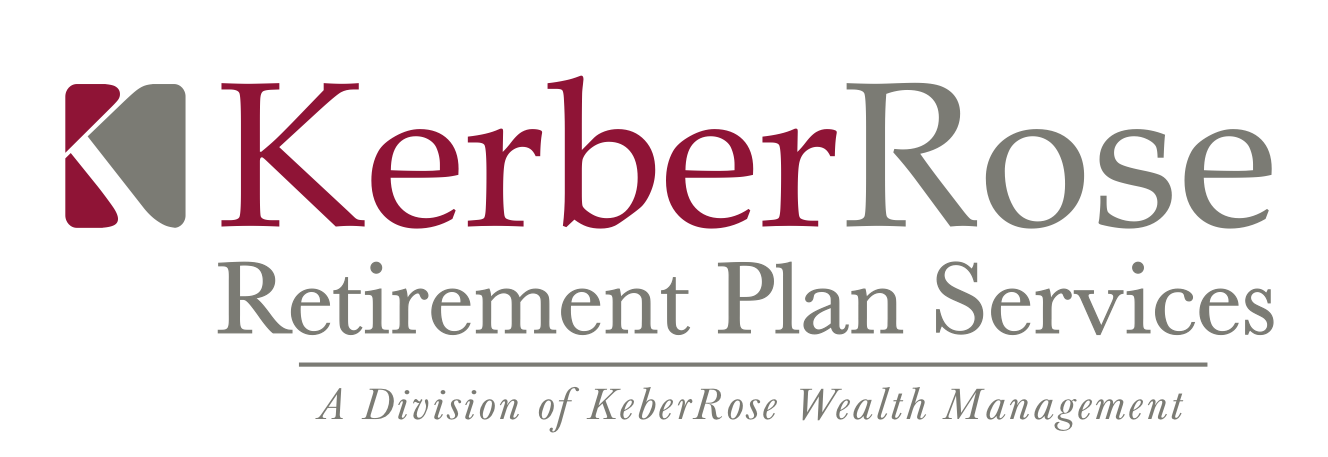The Latest News and Updates from KerberRose
Resources
Safe Harbor Deadlines
Safe harbor 401(k) plans are the most popular type of 401(k) used by small businesses today. Safe harbor 401(k) plans are a great benefit for all employees: by providing a certain contribution to all eligible staff, business owners, and other highly-paid employees, safe harbor 401k plans allow employees to fully save up to IRS limits ($57,000 for 2020, or $63,500 if over age 50).
Retirement Plan Check-Up
It is important to conduct regular check-ups on your retirement plan to make sure you are on track to reach your retirement goals. Below are a few questions to ask yourself, at least annually, to see if (and how) they affect your retirement planning.
Webinar Replay - Financial Wellness
Replay our FInancial Wellness webinar lead by Kameron Jones.
Allowable Plan Expenses: Can the Plan Pay?
The payment of expenses by an ERISA plan (401(k), defined benefit plan, money purchase plan, etc.) out of plan assets is subject to ERISA’s fiduciary rules. The “exclusive benefit rule” requires a plan’s assets be used exclusively for providing benefits.
Collective Investment Trusts — The Fastest Growing Investment Vehicle Within 401(k) Plans
From 2011 to 2018, total assets in CITs grew by approximately 64 percent. During which their share of 401(k) assets reached nearly 28 percent, or approximately $1.5 trillion.2
It’s That Time Again! Back-to-School for Fiduciaries
Can you hear the bells ringing? It’s that time of year to review your to-do list of fiduciary responsibilities. Ask yourself the following questions to make sure you are on top of your responsibilities and liabilities.
Participant Corner: Good Health is the Best Wealth
Believe it or not, staying healthy just might make you wealthy. With small lifestyle changes and healthy choices, you may reduce your annual healthcare costs and increase your income. These lifestyle changes can be as simple as limiting your salt intake or taking your prescribed medication regularly.
What Constitutes Proper Documentation of Retirement Plan Committee Meetings?
With most retirement plans, the fiduciary responsibility of selecting and monitoring the plan’s menu of investments is designated to a retirement plan investment committee. This committee usually includes financial officers and human resources officers of the employer. The committee meets periodically (anywhere from annually to quarterly) to consider agenda items including investment due diligence, fees and services of plan providers, status of plan goals, etc.
Why You Need to Communicate with Employees
Businesses understand how vital it is for employees to understand retirement options and are increasingly including employee education in fiduciary risk management, whether it’s in the form of one-on-one counseling or educational seminars. Take a look at these reasons why you should communicate with and educate your employees.
Are Your Participants Experiencing a Fee Imbalance?
Fred Reish, a partner with Drinker Biddle in the Los Angeles office has weighed in on this issue by stating, “While there are no requirements to charge equitable fees, in Field Assistance Bulletin (FAB) 2003-03, the Department of Labor (DOL) indicated that allocating plan expenses is a fiduciary decision that requires fiduciaries to act prudently… Whatever allocation method is used, failure by fiduciaries to engage in a prudent process to consider an equitable method of allocation of plan costs and revenue sharing would be imprudent and a breach of fiduciary duty.”
Webinar Replay - Education & Development: Investment Trends
Webinar Replay - Education & Development: Investment Trends
Looking to Reduce Your Fiduciary Liability? Benchmark Your Retirement Plan.
As a Plan Sponsor, you have a duty to perform ongoing monitoring of your company’s retirement plan. Since ERISA is complicated, navigating this landscape is oftentimes confusing and challenging. You might be wondering, “What do I need to do to avoid fiduciary liability for my 401(k) plan?”













